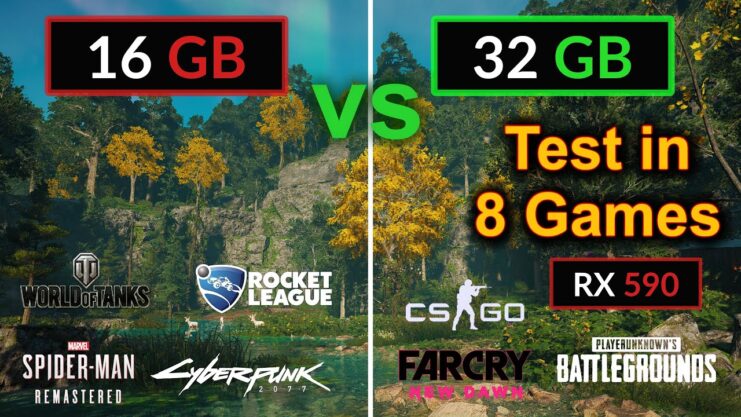Throughout my career in the PC world, I’ve kept a keen eye on the pulse of technological advancements. Today, I bring that knowledge to you, talking about the RAM battle between 16GB and 32GB.
This battle is not just about meeting performance expectations but exceeding them, ensuring efficiency, and guaranteeing that your system stands the test of time and demand.
My name is Chris Norton, and today, I will discuss the intricacies of RAM selection to help you make an informed decision that works with your computing needs, both for the present and the future.
The Role of RAM in Modern Computing
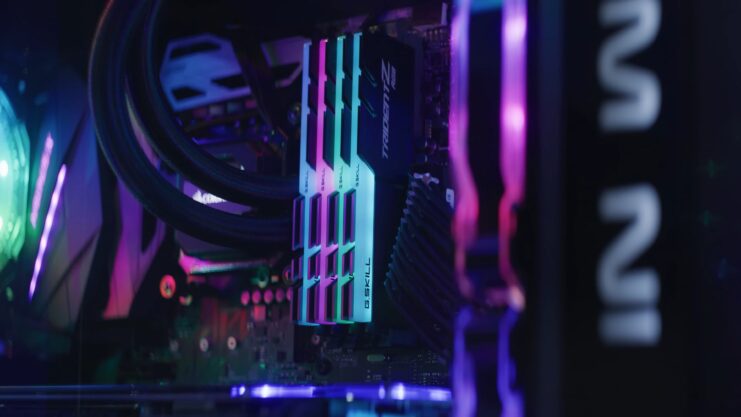
Random Access Memory is your system’s short-term memory. It stores the data your computer is actively using so that it can be accessed quickly. The more RAM you have, the more data your computer can handle at once, which translates to smoother multitasking and faster performance in demanding applications.
Why More Might Be Better
In the past, 4GB of RAM was sufficient for the average user. Today, 16GB is considered the sweet spot for most users. But with the advent of more complex software and the rise of 4K content, even 16GB can be stretched thin. Enter 32GB: a sizeable leap in memory that promises to keep your system running smoothly, even under heavy loads.
16GB: The Current Standard
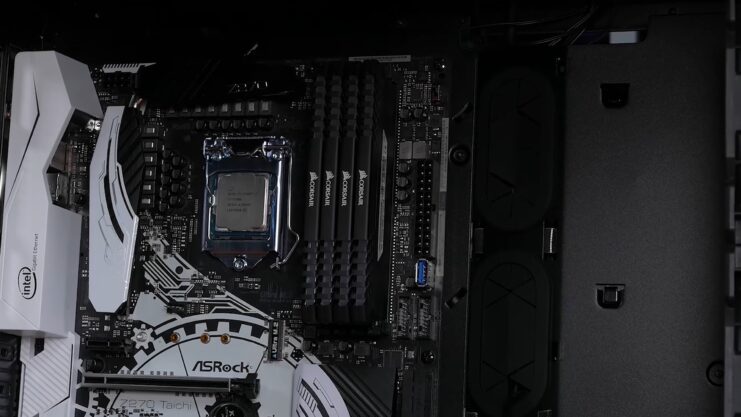
16GB of RAM is the baseline for gamers and professional users alike. It allows for comfortable gaming at high settings, efficient video editing at 1080p, and hassle-free 3D rendering or CAD work. It’s also ample for everyday productivity and entertainment.
Performance Expectations
With 16GB of RAM, you can expect your system to handle most tasks with ease. This includes running multiple applications simultaneously, having dozens of browser tabs open, and streaming high-definition video without a hiccup.
Cost vs. Benefit Analysis
The cost of 16GB of RAM is relatively low, making it an excellent value-for-money proposition. It’s an affordable upgrade that offers a significant performance boost over the 8GB standard found in many entry-level systems.
32GB: The Future-Proofing Choice
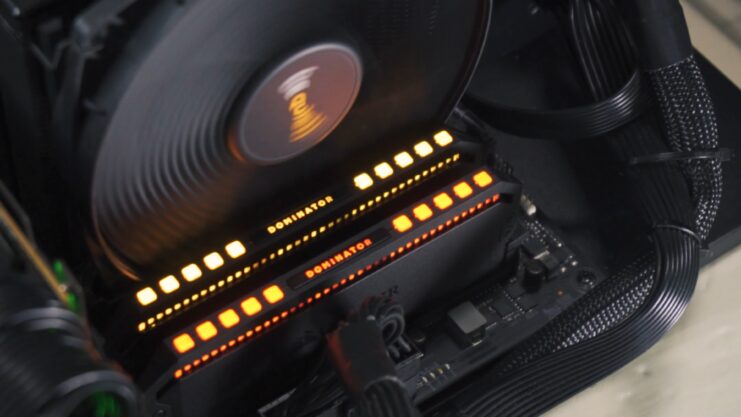
32GB of RAM is for power users. If you’re into high-end gaming, 4K video editing, large-scale data analysis, or virtual machines, 32GB of RAM provides a cushion that ensures your system won’t slow down during intensive tasks.
Performance Expectations
With 32GB of RAM, your system will be a powerhouse. You’ll be able to switch between heavy applications like video editing software and a game without any performance drops. It’s also ideal for professionals who use RAM-intensive applications like Adobe Premiere Pro or Autodesk Maya.
Cost vs. Benefit Analysis
The cost of 32GB of RAM is higher than 16GB, but the price has been falling steadily. It’s an investment in your system’s longevity, ensuring that it will remain capable of handling emerging technologies and software in the coming years.
Comparing 16GB and 32GB of RAM
| Feature | 16GB RAM | 32GB RAM |
| Gaming | Excellent | Superior |
| Multitasking | Very Good | Exceptional |
| Content Creation | Good | Excellent |
| Future Proofing | Moderate | High |
| Cost | Affordable | Higher Investment |
Real-World Performance
In real-world usage, the difference between 16GB and 32GB can be significant or negligible, depending on your tasks. For general use, 16GB is ample. But for high-resolution video editing or complex simulations, 32GB can be the difference between a smooth experience and a frustrating one.
Benchmarks and Tests
Benchmarks show that in gaming, 16GB and 32GB of RAM perform similarly in most scenarios. However, in professional applications like video encoding, 3D rendering, and large datasets, 32GB of RAM can dramatically reduce processing times.
Making Your Choice: 16GB or 32GB?
Consider your current and future computing needs. If you’re a gamer or a general user, 16GB should suffice. But if you’re a professional or enthusiast with demanding computing needs, 32GB is the prudent choice.
The Cost Factor
Budget is always a consideration. If you can afford 32GB without compromising other components, it’s a wise choice. However, if choosing 32GB means skimping on a faster processor or SSD, you might want to reconsider.
Upgradability
Some systems allow for RAM upgrades. If you’re unsure about your future needs, you might start with 16GB and leave room for adding more RAM later. However, if your system doesn’t support upgrades, opting for 32GB now could save you from a more costly upgrade down the line.
Upgrading from 16GB to 32GB: Is It Worth It?
Upgrading from 16GB to 32GB is a decision that should not be taken lightly. It requires a consideration of the types of applications you run and whether they will benefit from the extra memory. For most gaming scenarios, the upgrade offers diminishing returns. However, for professional workloads, the additional RAM can be transformative, reducing render times and improving workflow efficiency.
The Impact on Performance
The impact on performance when upgrading from 16GB to 32GB can be measured in seconds or minutes saved during high-load tasks. This time saved can accumulate, leading to hours of increased productivity over the long term. For gamers, the extra RAM may offer a smoother experience in memory-intensive games or when multitasking with streaming software.
The Future of RAM Usage
Software is becoming more demanding, with applications leveraging more RAM to deliver enhanced functionality and better user experiences. As 4K and even 8K content become more prevalent, the memory requirements for editing and playback will inevitably increase.
The Evolution of Operating Systems
Operating systems are also evolving, with future versions likely to require more RAM to function optimally. Investing in more RAM now could mean a smoother transition to next-generation operating systems and software.
Tips for Optimization
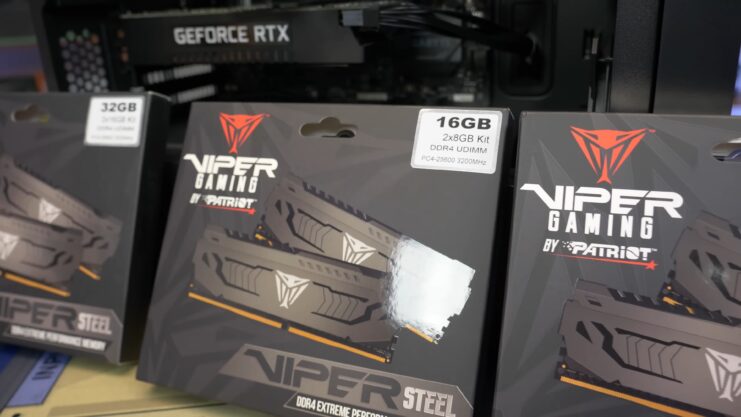
Managing Your System Resources
Even with ample RAM, it’s crucial to manage your system resources effectively. Regular maintenance, such as closing unused applications and managing startup programs, can help ensure that your RAM is used efficiently. For those with 16GB, this can mean the difference between a system that feels fast and one that lags under load.
Overclocking: A Viable Option?
Overclocking RAM can lead to performance gains, particularly for gaming and memory-intensive tasks. However, it’s a process that carries risks and may void warranties. It should only be considered by those who are knowledgeable and willing to accept the potential consequences.
The Impact on System Longevity
More RAM can extend the life of your system by making it capable of handling more advanced software and larger files in the future. While 16GB is adequate for now, 32GB can delay the need for a new system, providing better long-term value.
The Resale Value Consideration
When it’s time to upgrade or sell your system, having 32GB of RAM can increase its resale value. It signals to potential buyers that your system was built to handle demanding tasks and is still relevant in the current tech landscape.
FAQs
Can having more RAM than needed improve my computer’s speed?
Having more than you currently need won’t necessarily increase your computer’s speed. RAM is about capacity; having more than what is required simply means you won’t run out of memory during heavy tasks. However, if your usage doesn’t consume 16GB, then having 32GB won’t make your computer faster.
Will 32GB of RAM improve my gaming experience over 16GB?
For most modern games, 16GB and a processor working at normal temperature is sufficient, and you won’t see a significant improvement in gaming with 32GB. However, if you run other memory-intensive applications in the background while gaming or if you’re aiming for future-proofing your gaming setup, 32GB could be beneficial.
Is there a power consumption difference between using 16GB and 32GB of RAM?
Yes, more RAM can lead to higher power consumption, but the difference is usually minimal for most users. If you’re using a laptop and battery life is a concern, the increased power draw from 32GB could slightly reduce battery longevity compared to 16GB.
Does having 32GB of RAM mean I can run twice as many applications as with 16GB?
Not necessarily. The number of applications you can run smoothly is influenced by how much memory each application uses. While 32GB can handle more data at once, it doesn’t directly translate to running twice as many applications as 16GB.
Can upgrading my RAM from 16GB to 32GB help with web browsing?
Web browsing typically doesn’t require a large amount of it unless you tend to have a very high number of tabs open simultaneously. For average browsing habits, 16GB is more than sufficient, and upgrading to 32GB would not yield significant benefits.
If I upgrade to 32GB, will it make my computer boot up faster?
Boot times are more dependent on your storage device (like an SSD) and processor rather than RAM. Upgrading from 16GB to 32GB won’t have a noticeable impact on boot times. If you’re looking to improve boot times, consider upgrading to a solid-state drive (SSD) if you haven’t already.
Summary
The decision between 16GB and 32GB of RAM comes down to a balance between current needs, future-proofing, and budget. For most, 16GB strikes the best balance between performance and cost.
For those pushing the envelope of PC performance, 32GB is the key to unlocking their system’s full potential. It’s important to note that technology is an investment. Choosing the right amount of RAM is about understanding your needs and ensuring that your system continues to serve those needs for years to come.

